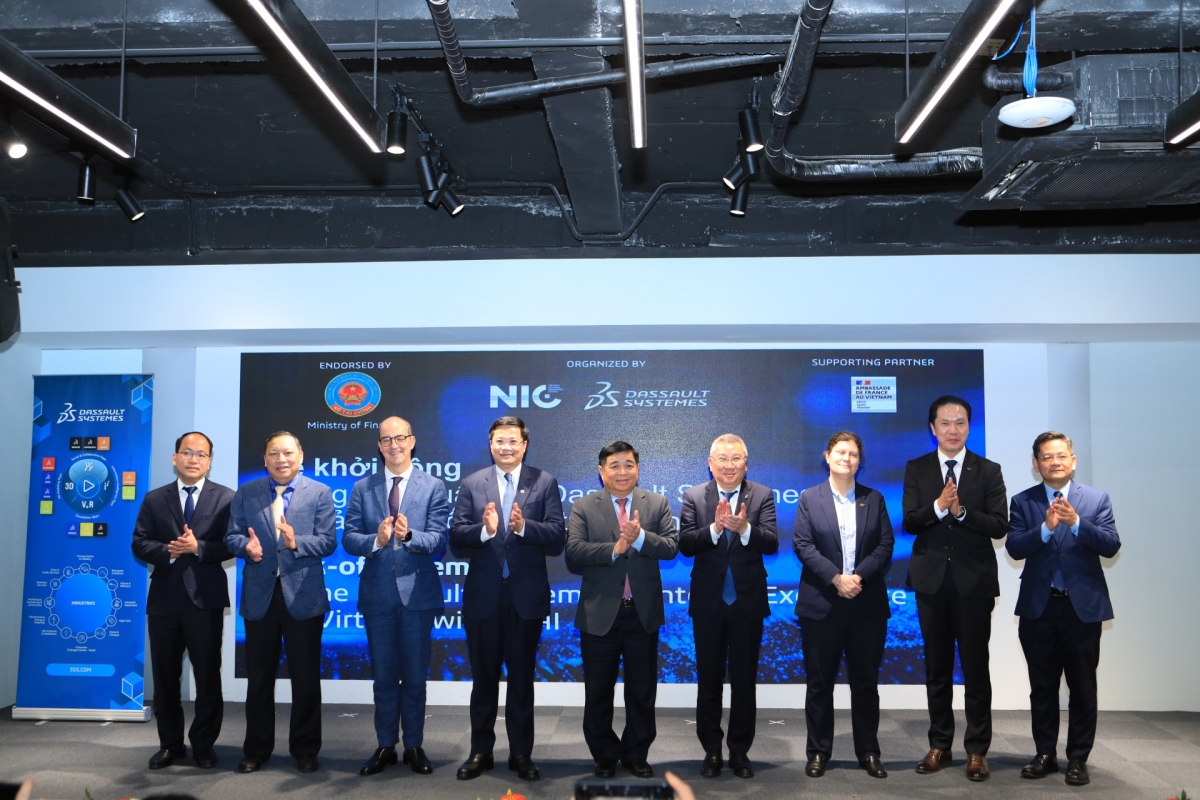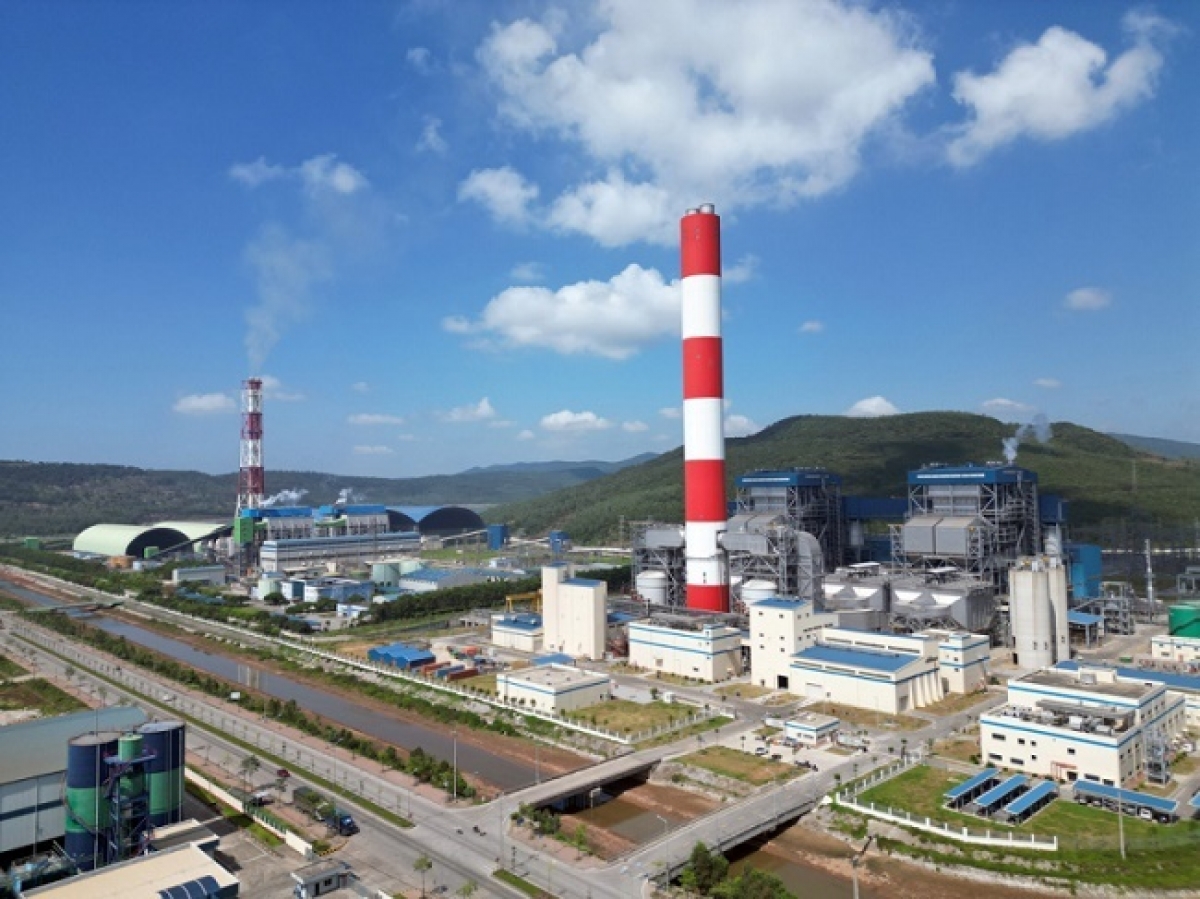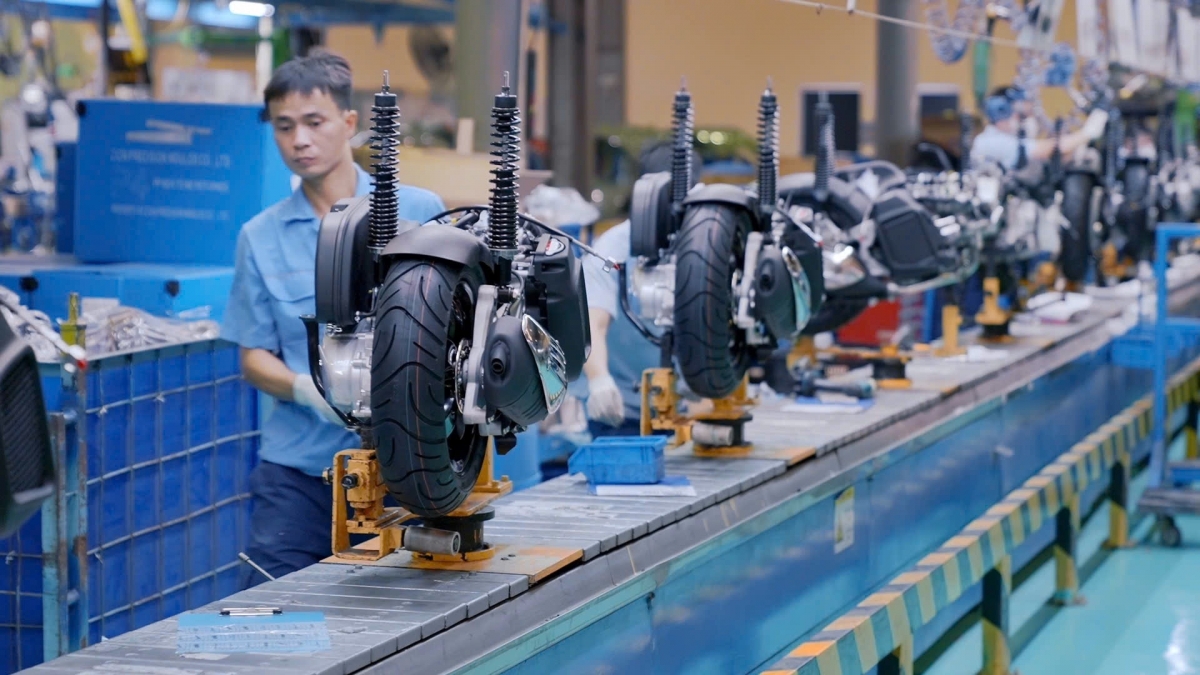INTERNATIONAL INVESTMENT
AND PORTAL
These aspects were at the heart of a high-level roundtable held in Hanoi on 20 May by the Association of Chartered Certified Accountants (ACCA), bringing together CEOs, industry experts, and ACCA executives to discuss the macroeconomic headwinds shaping 2025. The discussion provided critical insights into the challenges posed by global economic fluctuations and the strategies needed to build resilience in an increasingly volatile trade environment.
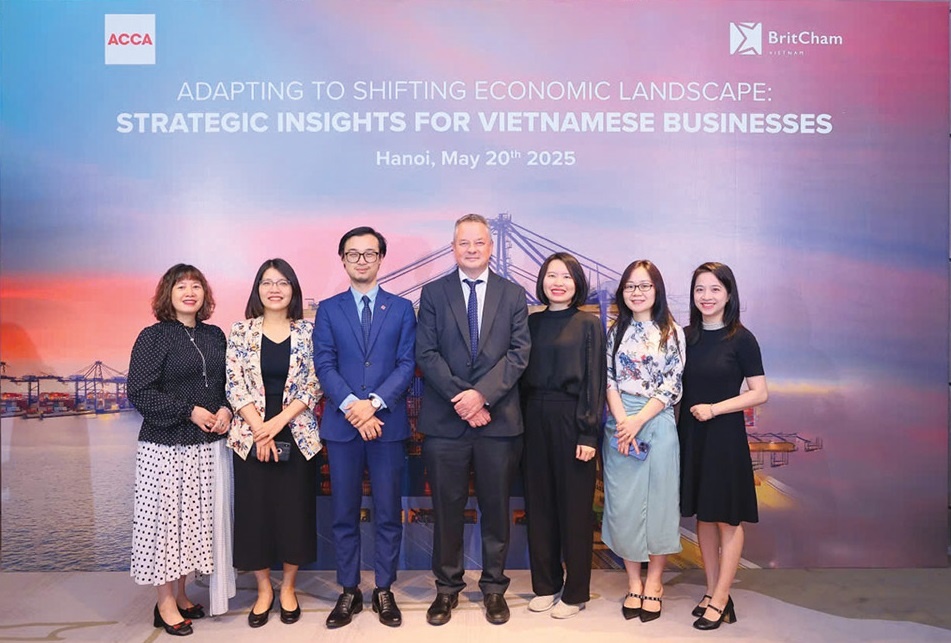 The ACCA event in Hanoi saw the participation of a range of experts and executives
The ACCA event in Hanoi saw the participation of a range of experts and executives
A key theme emerging from the roundtable was the growing dominance of trade-related uncertainties on the global economic agenda. Participants agreed that economies deeply integrated into international trade networks, like Vietnam, will feel these pressures most acutely.
Mike Suffield, director of Policy and Insights at ACCA Global, highlighted that Vietnam’s response to these challenges could serve as a valuable example of economic resilience.
“As a country closely linked to global trade flows, Vietnam’s approach will be especially instructive,” he said. “Against this backdrop, the ACCA is preparing to release a comprehensive report on global trade disruptions this September. The report aims to offer detailed guidance for governments and businesses navigating the increasingly complex trade environment.”
Suffield also noted a significant drop in global business confidence, now at its lowest level since the second quarter of 2020. However, despite this bleak outlook, a modest rebound in new orders points to underlying demand that persists amid the uncertainty. “The decline in confidence is most pronounced in North America, where US sentiment has plummeted to historic lows since the ACCA’s survey began in 2011. This downturn can be attributed to rising protectionism and substantial federal spending cuts, factors that continue to weigh heavily on the economic outlook,” he added.
While the current pause in the US-China tariff escalation offers some temporary relief, Suffield warned that this reprieve is fleeting and should be leveraged to work towards more sustainable trade frameworks.
“Compounding these challenges, US consumer sentiment has deteriorated sharply. Inflation expectations have surged beyond 6 per cent, the highest since 1981, while declining real incomes and weak equity markets threaten both consumption and private investment,” he explained.
Despite these headwinds, Suffield remains cautiously optimistic. He pointed out that there is still a possibility the US could avoid a recession if trade negotiations succeed in easing tensions. However, he emphasised that uncertainty will likely continue to shape the global economic outlook for the foreseeable future.
In this context, technological innovation is emerging as a key lever for resilience. Speaking at the roundtable, Nguyen Thi Phuong, consulting director at FPT IS, said that digital transformation is a fundamental shift in how global trade operates.
“Amid rising geopolitical tensions and shifting tax regimes, technologies such as AI, blockchain, and automation are enabling businesses to streamline customs processes, optimise supply chains, and respond more nimbly to disruptions,” Phuong said.
She noted that digital adoption is no longer optional. “Many CFOs recognise that market and supply chain diversification are essential, but manual processes cannot keep pace with today’s complexity. Digital technologies offer the scalability and flexibility required to thrive,” she added.
However, while Vietnam has made strides in digitalisation, major gaps remain. Trade processes often involve multiple, disconnected systems, ranging from banks and insurers to shipping lines and customs authorities, making real-time coordination difficult.
To address these challenges, FPT and a partner introduced a digital trade finance platform in 2023, establishing a unified gateway that automates documentation, enhances transparency, and reduces operational costs. “This integration helps streamline trade processes and strengthens Vietnam’s competitiveness, reinforcing its appeal to global partners,” Phuong noted.
Even as digital innovation continues to transform operations across sectors, strategic trade policy remains a cornerstone of Vietnam’s economic resilience. Pham Vu Thang Long, senior research director and head of Macroeconomics at Ho Chi Minh Security Corporation, highlighted the urgency for Vietnam to diversify its export markets, fully leverage existing free trade deals, and accelerate the transition towards more sustainable production models.
Encouragingly, Vietnam’s export performance has shown robust momentum, defying broader global headwinds. According to Long, export turnover surged nearly 30 per cent in March and April, propelling on-year growth for the first four months of 2025 to over 25 per cent.
“Despite rising tariffs and a shifting trade landscape, Vietnam’s export sector remains remarkably resilient, supported by structural strengths, strategic trade policies, and a dynamic workforce,” Long observed.
In addition, Vietnam’s active participation in free trade agreements has further broadened its preferential access to diverse markets. Although a bilateral trade deal with the US is still under negotiation, Long emphasised that Vietnamese products are already maintaining a strong presence.
“Diversification is no longer merely a strategic goal, it has become an imperative,” he said. “By broadening market reach, strengthening digital infrastructure, and maintaining agility amid external shocks, Vietnam is well-placed to mitigate emerging risks and also set a benchmark for resilient and adaptive trade across Asia-Pacific and beyond.”
 The talent equation has changed: has your strategy?
The talent equation has changed: has your strategy?
In Asia-Pacific, as elsewhere in the world, the future of finance is not just about technology or sustainability, it is about people. And right now, those people are on the move.
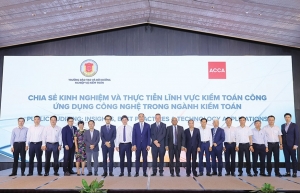 Digital age truly here for public audits
Digital age truly here for public audits
The role of public auditing is undergoing a fundamental shift in Vietnam thanks to the digital revolution.
Gwendoline Brooker, partner, Frasers Law
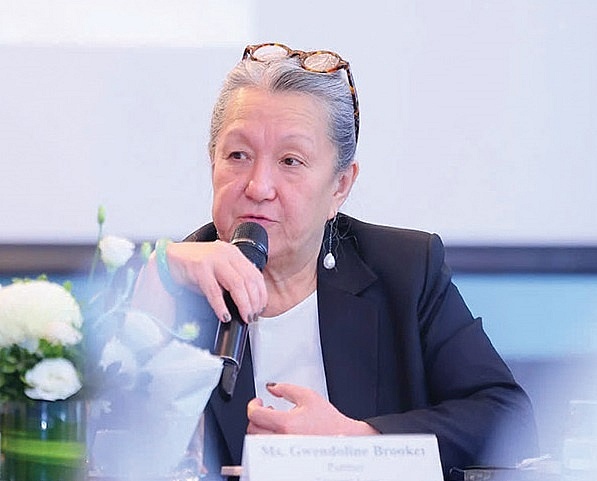
Vietnam is seeing increased interest from international partners eager to deepen trade and investment ties. European Union trade delegations are visiting more frequently, with investors seeking clarity on legal frameworks and export procedures essential for market access.
Canadian delegations also view Vietnam and ASEAN as more stable alternatives.
From my advisory experience, manufacturers must diversify export markets to reduce overreliance on any single economy. Equally important is building trusted relationships with the Vietnamese government, not only for regulatory compliance but to ensure consistent policies that foster business resilience amid global volatility.
Energy, particularly clean and sustainable sources, underpins all sectors, manufacturing, services, and tourism alike. Vietnam’s rapid tourism recovery has increased demand for hotels and resorts in environmentally sensitive and remote areas, where reliable energy infrastructure is crucial for sustainable growth.
Vietnam faces two interconnected challenges: concentrated export markets and energy insecurity. Nearly 46 per cent of exports go to the US, mainly textiles, electronics, and steel. Major manufacturing clients, including Taiwanese firms, are now actively seeking to diversify beyond the US due to rising global uncertainty.
This aligns with a global shift as countries rebalance trade to reduce dependence on single partners. The message is clear: Vietnam must act quickly to diversify its trade and investment partners.
Energy remains a critical bottleneck. The Power Development Plan VIII promised a cleaner future, but has faced setbacks. Foreign investment in renewables has declined, and key players like Equinor have exited amid uncertainties around tariffs and power purchase agreements. Energy shortfalls threaten all sectors. Vietnam’s future competitiveness depends on securing reliable, affordable, and sustainable energy to support industrial and economic growth.
To Quoc Hung, country manager, ACCA Vietnam

As Vietnamese enterprises confront a growing array of challenges, from market volatility and evolving regulatory regimes to the accelerating pace of technological change, forums such as this roundtable are more critical than ever.
They serve as essential platforms for knowledge exchange, enabling businesses to share insights, foster collaboration, and strengthen their collective resilience in the face of ongoing disruption.
Within this context, we remain committed to supporting businesses on their transformation journey. By identifying emerging trends and equipping companies with practical tools and knowledge, we aim to help businesses formulate and implement effective strategies. This approach aligns with our broader mission to uphold excellence in the accountancy profession while championing sustainability, an increasingly essential lever for unlocking long-term economic prosperity in Vietnam.
One sector that exemplifies this intersection of opportunity and challenge is Vietnam’s fast-growing technology manufacturing industry. Now ranked among the country’s top 10 tech hubs, the sector has reached a critical inflection point. Industry dialogues reveal that around 85 per cent of its production is directed to the US market. While there is strong ambition to expand into the EU, firms face significant hurdles, particularly in adapting to stringent sustainability regulations.
In response, many manufacturers are engaging consultants to establish robust sustainability reporting frameworks. Although this transition remains resource-intensive, it is prompting a strategic reorientation. Yet, achieving compliance with evolving international standards remains a complex undertaking.
Vietnam must accelerate efforts to align with international standards as it seeks to diversify its global trade portfolio. In particular, the adoption of global sustainability and disclosure benchmarks is critical to enhancing transparency with international markets.





